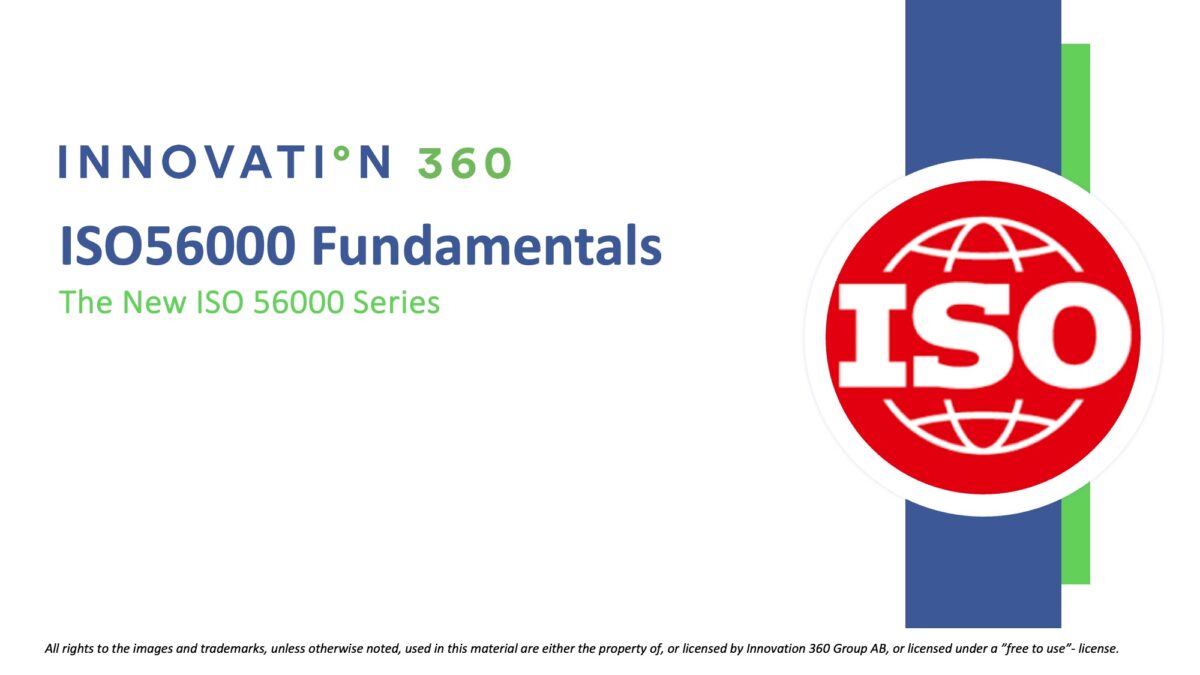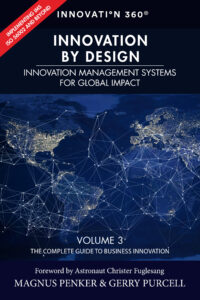In today’s fast-paced world, where innovation is not just a buzzword but a critical driver of success, organizations must stay ahead of the curve by adopting proven methodologies and standards. The ISO 56000 Fundamentals course offers a first introduction to the new ISO 56000 standard for innovation management. Coupled with insights from the new book “Innovation by Design,” this course provides the tools and knowledge needed to excel in the ever-evolving landscape of innovation.
Why ISO 56000 Fundamentals is Essential for Your Organization
ISO 56000 Fundamentals is a key standard that guides organizations in establishing, implementing, maintaining, and continually improving an innovation management system (IMS). As businesses face unprecedented challenges and opportunities, adopting ISO 56000 Fundamentals can be a game-changer. It helps organizations create a structured approach to innovation, ensuring that ideas are effectively managed and transformed into successful products, services, or processes.
The course on ISO 56000 Fundamentals offers a first overview of the principles that form the foundation of an effective IMS. By the end of the course, participants will be oriented to take the help needed to build the capabilities and culture, taking the first steps towards an IMS and an ISO 560000 future certification.
The Eight Pillars of ISO 56000 Fundamentals
ISO 56002 (guiding standard) Fundamentals is built on eight core principles that are crucial for the successful implementation of an innovation management system:
- Realization of Value: Ensuring that innovation activities lead to tangible benefits.
- Future-Focused Leadership: Leadership that is committed to driving innovation and embracing change.
- Strategic Direction: Aligning innovation with the organization’s strategic goals.
- Culture of Innovation: Fostering an environment where creativity and experimentation are encouraged.
- Exploiting Insights: Leveraging data and insights to drive innovation.
- Managing Uncertainty: Developing the ability to adapt to changing circumstances.
- Adaptability: Ensuring that the organization can pivot and respond to new opportunities or challenges.
- Systems Approach: Integrating innovation into the organization’s overall system and processes.
These principles are not just theoretical; they are actionable guidelines that participants will learn to apply in their organizations. The course provides practical examples and case studies that demonstrate how these principles can be effectively implemented.
ISO 56000 Fundamentals and the Path to Certification
One of the key benefits of the ISO 56000 Fundamentals course is that it prepares organizations for certification, which is becoming increasingly important in today’s competitive landscape. ISO certification is a mark of quality and credibility, signaling to customers, partners, and stakeholders that an organization is committed to excellence in innovation.
The course covers the most important steps in the certification process, from the initial application to the final audit. Participants will gain a clear understanding of what is required to achieve and maintain certification, including the documentation, processes, and systems that need to be in place. Regular surveillance audits and the importance of continuous improvement are also emphasized, ensuring that organizations not only achieve certification but sustain it over time.



